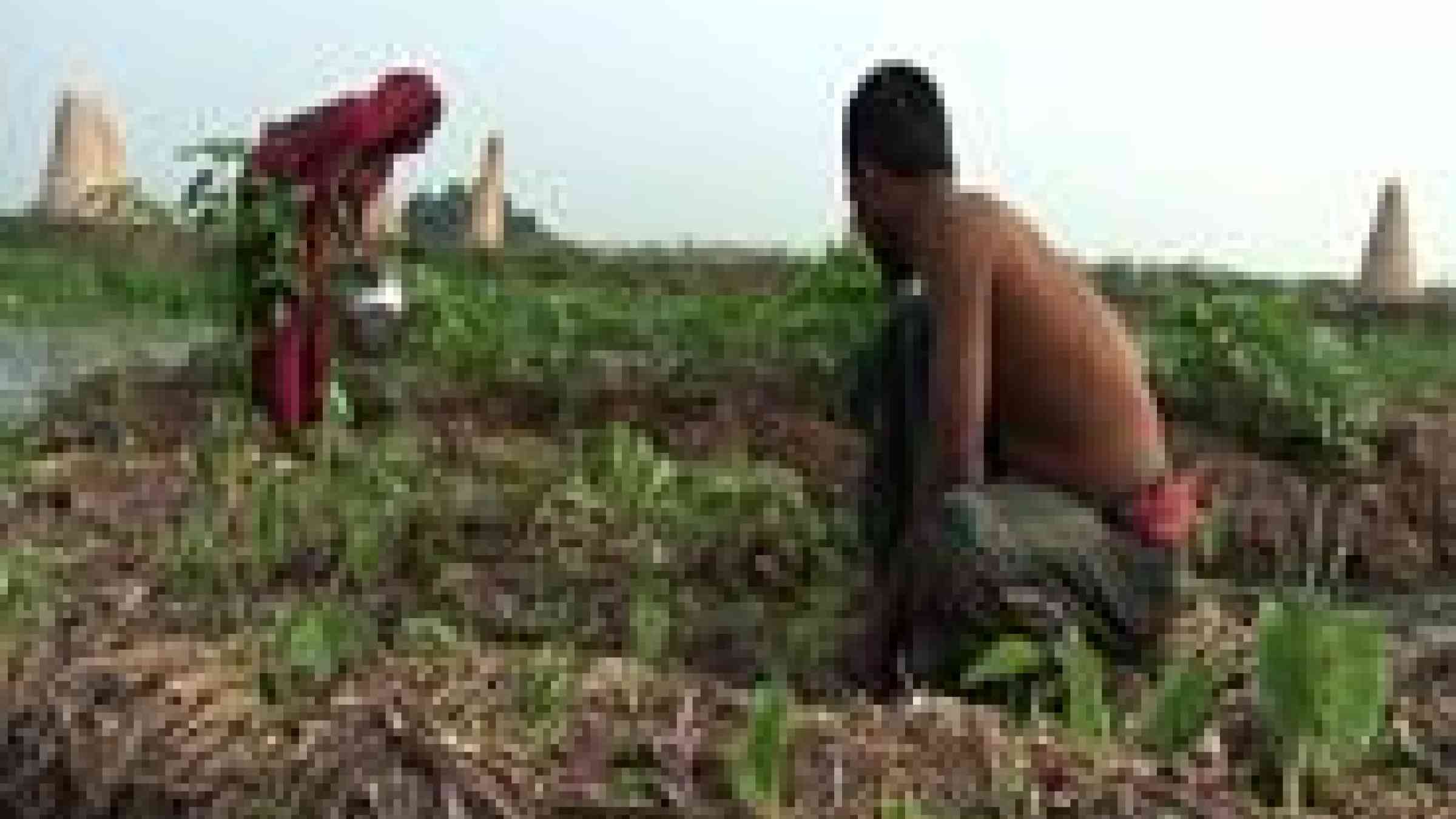Please help us improve PreventionWeb by taking this brief survey. Your input will allow us to better serve the needs of the DRR community.
Call for 'no regret' climate adaptation strategies

Peter Murimi/Irin http://www.irinnews.org/report/98230/call-for-no-regret-climate-adaptat…
Johannesburg - The absence of accurate climate prediction models should not dissuade countries from choosing the best ways to adapt to a changing climate, says a new report published in the Proceedings of the National Academies of Sciences.
“Even when our knowledge is incomplete, we often have robust grounds for choosing best-bet adaptation actions and pathways, by building pragmatically on current capacities in agriculture and environmental management, and using projections to add detail and to test promising options against a range of scenarios,” said Sonja Vermeulen, head of research at the CGIAR Research Program on Climate Change, Agriculture and Food Security (CCAFS) and lead author of the report.
The CCAFS study shows how some countries have chosen to work with the information they have to plan adaptation strategies. For instance, Sri Lanka decided to use vulnerability analysis - based on the Intergovernmental Panel on Climate Change (IPCC) framework of exposure, sensitivity and adaptive capacity - at the district level which showed, among other things, the level of exposure of a certain community to a climate hazard. This process, along with consultations with communities, helped the government identify feasible and low-cost interventions.
One of the best adaptation strategies that the country came up with was “the restoration of the ancient tank storage system in the country, to provide `insurance’ against climate variability in the most vulnerable districts (primary agricultural),” said the study. These tanks had been installed by ancient Sri Lankan kingdoms to collect and store rainwater for use in drier times.
Farmers also recycled their household wastewater and scaled back groundwater use to sustainable levels. These are referred to as "no regrets" strategies which cause no harm and help to make communities more resilient to climatic shocks.
On the other hand, the CCAFS analysis shows how information from climate models and studies can be useful. Policymakers could sift through the information to consider areas around which there is a general degree of consensus and then move to take action.
For example, while various climate models offer different assessments of changes expected in Central America, they agree that over the long-term, higher temperatures are likely to render Arabica coffee production unsuitable at lower altitudes. Countries can adopt “no regrets” adaptation strategies, such as shifting some production to higher altitudes and, at lower altitudes, switching to a different, but similarly lucrative crop, like cocoa.
The authors are not suggesting a dependence on one approach to plan adaptation strategies, Vermeulen told IRIN. “We are saying you could marry both bottom-up [ such as vulnerability analysis] and top-down approaches [climate science projections].”
Besides, adaptation strategies based on vulnerability analysis probably work in the short-term but long-term adaptation needs good projections of how the climate might behave.
She said what the study found encouraging was that despite the low level of funding for adaptation committed to at the UN climate change talks, developing countries have begun to elaborate their own strategies.
Nevertheless, countries have to realize that adaptation strategies and development goals will need to be revised constantly, said Vermeulen. “Attaining certain development goals does not mean nirvana - adaptation and development need to be continuously updated.”
The Intergovernmental Panel on Climate Change's fifth assessment on the best of climate change science, due to be released in 2014, will look how climate science can deliver information with time frames that policymakers can use, she said.
jk/cb
Explore further
Please note: Content is displayed as last posted by a PreventionWeb community member or editor. The views expressed therein are not necessarily those of UNDRR, PreventionWeb, or its sponsors. See our terms of use
Is this page useful?
Yes No Report an issue on this pageThank you. If you have 2 minutes, we would benefit from additional feedback (link opens in a new window).